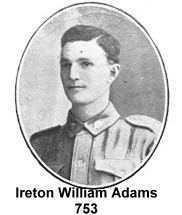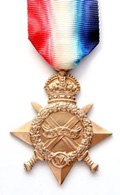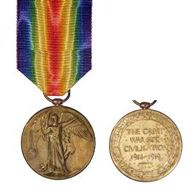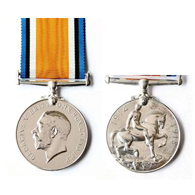ADAMS Ireton William
-

- 753
- Trooper
- 5 Light Horse Regiment
- 3rd Reinforcement
- Nambour
- Yes
- 25 August 1893
- Brisbane Queensland
- 23 December 1914
- HMAT A53 Itria
- 9 February 1915
- Brisbane
-
WW1 history
9/2/1915 – Embarked for OC per H.M.A.T.A53 “ITRIA”
29/7/1915 – Taken on Strength – Joined Unit at Gallipoli
23/9/1915 – To Malta per “Moheno” – suffering from Gastritis, Admitted Floriania
29/12/1915 – Disembarked Alexandria, HT Bonic
26/2/1916 – OC Regiment Marched out to Serapaan ,Maadi – Joined Unit
20/10/1917 – March out to School Instruction, Marakeb – 27/10/1917 - 1st class 30 Hotchkiss coarse
28/10/1917 – Rejoined Unit
30/8/1919 – Marched out for Australia per Dunbar Castle
30/10/1919 – Discharged from service
Description – 5ft 81/2 – 130lbs – Fair Complexion – Brown Eyes – Brown Hair – Religion Presbyterian – Age 21yrs 3mths – Coach builder –nok Father William Adams , Maud St. NambourThe next article has to be included as it is a description of his time in the war in his own words
Private I. W. Adams writes to his mother (Nurse Adams, Maud Street Nambour), from Demader, Egypt, and his father as well:
Have not heard from you since my last, but as I may lose the chance for some time if I do not take it at once, I will not take the risk. We have had some fairly warm fighting here. Abdul made a bid for some of our positions, but failed miserably. We knew through our aerial service that he was marching on us in strong force but we did not get into touch with him until August 1 when he attacked Romani at dawn. Although we had been doing big patrols our real work's not start till that day, when we had to make a reconnaissance of the, enemy's left flank. Our morning's work nearly proved fatal: a battalion of Turks suddenly and unexpectedly opened fire on us, and nothing but a hasty retirement over 300 or 100 yds of open country, exposed to uninterrupted fire at ranges varying from 50 to 400 yards saved our lot from being wiped out. However, it proved a bad day for Jacko, and that evening he compelled to withdraw to Katia. Once moving we gave him no rest, and on the 5th a combined attack was, made on Katia by the mounted from this section of the Canal, after a hot day's fight he was forced to withdraw, and fall back on Ogtaliua. This was the day on which we made our charge on horseback with fixed bayonets. 1 am glad 1 was in that bit, as we can safely say it was the first, time in history that a charge of mounted men with fixed bayonets has been made.
Ogratina was held by the Turks for 2 two days, at the end of which they retired on Ber-el-Aba, at which place he put up his final stand. Things were made so hot on the 8th, 9th, 10th, and 11th that on the night of the 11th Abdul thought it wise, to quit, and set out for home over a dry stretch of 20 miles. Of the 13000 Turks who attacked us over 7000 were left behind, and of these over 4000 are prisoner in our hands and the rest killed or wounded. In addition a great amount of provisions were left behind, and several guns, machine guns, etc. were left in our hands. Now this little flutter is over we arc once more leading The slow and in a way to us aimless life. I do not think we are likely to be disturbed again for some time here, perhaps never, so let. us hope they will find something for us to do in France before long, I expect you will see list of our casualties in the paper.
Two of my best mates were hit. One I buried where he fell, scraping a shallow grave out of the sand with my hands and his own helmet. The other is badly hit through the chest, but I think there are good hopes for his recovery. Bill Staford and I are still together, and Jack Graham is still 'with us. Jack and I wrote A.C a joint letter night before last. I should mention that although our regiment is still out on outpost duty, we, Jack, Bill and I and many more are back at the old posts awaiting remounts, our old horses being knocked up after the heavy work of the last month. Everything here seems very quiet after all the excitement; nothing to disturb us but an occasional aeroplane, and they don't worry us much.
??????? J. Hardis? writes to Mr and Mrs (Grimwade of Nambour), from In the Field', France, I feel that I feel that I must write you know that I am still well to thank you for the parcel of cigs etc. which could not have arrived at a more opportune time. We were all broke and working day and night with no chance of getting any and your parcel was like a gift from the gods. You are the only one of all my friends who I hear from at all; but has its advantages as I don't have to do much writing, am that is a consideration when the conveniences are practically nil, I am writing this with the paper on knees so you must excuse any irregularities, Your papers, are coming to hand fairly regularly and accept my thanks for these also, They help to take my thoughts, back to QId. Where I will be as soon as the punt can take we as, soon as this business is over.
Kitchener is reported to have said that he had liners : to bring us over but we would all be able to get into a punt to go back; If my luck only sticks to me I will be one of these few.
We have been in action some time now and up to the present have been very lucky. We were shelled out of our last position and had to leave in hurry. One can hear all the shells coming and when they are coming straight you would laugh to see the boys scatter. The best plan is to lie flat on the ground and I can tell you we feel glad after the explosion. At one time they were bursting about our Heads, in front of us and the shrapnel was cutting the cables in our lines.
We only had one in the lines but it only wounded a couple and got two horses. After that we imshied as fast as we could get. I got a crack on the knee with a bit of shell casing but it was spent and only left a bruise.I nearly had a back wound and a trip and a trip to the old dart. We take the ammunition up at night and lose no time about it. The Germans shell the roads at night to try and prevent this but the danger is practically nil.
There is more danger of one horse falling in a hole and getting a shell, than getting shot. But it is all right while we are on the move , but when we are unloading and the shells start to come well it makes the horses restless.
Our infantry went over, but I suppose you know more about this than I do.
We only know what happens in our immediate vicinity and I don't think the censor would allow too much about that. Our brigade took about three hundred prisoners and I ,was fortunate enough to see these as they were being marched away. They look so very sick but I after the bombardment they had to go through one can only expect that. These bombardments are a unique sight to see and those who have to go through them are to be pitied for humanities sake; but we all feel a sense of exultation and gratification to see the ground occupied by the Germans, literally churned up like a heavy sea against a breakwater The view beyond the trenches is obscured by the earth and mud that is thrown up to a height of 10 or 6O feet. All the time the shrapnel is bursting overhead with thunderous precision and persistence, and one wonders how anything at all can live in this hellish volcano. At night it looks like a solid wall of flame made up of patches of extreme brilliance with no distinct line of demarcation. between each successive burst, but tapering of to a dull red. It all has a fiendish grandeur about it when one know what it all means.
As trenches are obliterated and only the deepest dugouts survive. When our boys go over they find the enemy huddled in these and the threat of a bomb amongst them brings them out and that is how we come to take prisoners. After taking the ground the trouble is to hold it against the counter attack that is sure to come.
The machine guns is one of the enemy's most effective weapons and they know how to use them. Only a direct hit with a high explosive will actually silence these murderous little -machines. That is not hard to do, but the difficulty is in locating their posey. When this is done they are soon in their long home. Our trench mortars are another of the devils weapons. They throw a sixty pound bomb of H.E. and put Fritz's trenches up in the trees. There is nothing like a bit of high explosive to alter the face of the country.
Our posey was on the outskirts of a ruined town, which is battered and knocked about beyond all hope of repair, whichever way one looks their is evidence of battle. What houses are left standing are so knocked about by shell firings to render them likely to fall at anytime.
Everywhere there are traces of strict fighting which must have been most desperate, all the walls are lopsided and they are almost cut through about these holes by rifle fire. Wire entanglements are everywhere and it must have been momentous task to clear Fritz out of it.
The church has not escaped, and although it is standing, it has shell holes in it like railway tunnels. All the ornamental statues, crucifix etc; are in ruins They have beautiful churches over here with graveyards round them. The sculptures, woodcarvings and window paintings etc, are beautiful beyond the descriptive power of my pen, and to destroy these treasures of art that will never be replaced seams to me to be over the odds in vandalism.
The tomb stones and vaults are blown open and beautiful monuments in marble aren't fit for road metal On the roads here are fixed huge crosses of wood on which are a representation of the crucifixion. They are usually in a sort of alcove of trees on the street corner or have an elaborate covering of some description over them. There is a sort of praying stool at the foot where I understand the people went to offer their prayers.
Sort of bringing the church to the people They usually are between 20 and 30 ft high. The war has played havoc with these. In some cases they are blown down altogether in others the Saviour is only wounded and has lost an arm or leg. A good plan over here is to keep away from all religious edifices as one is less likely to get a knock by doing so.
Word has just come up from the trenches that Fritz has sent over a dummy bomb in which is a message that he is going to blow us all to hell on the 4th August. You can bet your life they sent him back an appropriate reply. He sent across a message something like this the other day. "Hop across you Kangaroos and we will make you hop", We hopped over and think he was sorry, although he made us 'hop'.
Have seen a good bit of the Tommies since I came over here, and when one knows what they have had to put up with, with regard to gas, tear shells, liquid fire, and all the inhuman weapons that the enemy use, one's opinion of them must improve.
We do not see the better class of immigrants out in Australia, and make a big mistake in judging the whole by a few we may come in contact with.
The gas is a hellish thing, and we cannot be without our helmet at any time. One breath is sufficient to kill a man in the trenches, and it takes from one to two minutes to finish a man off back where we are. We are always on the alert and the alarm is given by gongs hung at intervals of a hundred yards, or so along every road. On a fifteen mile breeze it does not take long for it to travel, and one must be quick and lively, helmets are very effective and there is not much danger if one gets them adjusted properly in time. Fritz has a new way now of firing the gas over to the artillery in shells that do not make a report when bursting, so when we hear that do not explode we must be careful. Of course a lot of shell do not explode through faulty ammunition and one is likely to get careless, when the gas shells do come through thinking they are faulty H.E. dinkum ones. We have not had any of these, but anything is liable to happen at any time. 29th September, 1916 - Chronicle and North Coast Advertiser.Family history & General Information
Ireton William was the youngest of 3 children born 1893 – C4149 Qld to William Adams & Alice Ann Knowles.
His sister Louise Ellen was born 1884 – B33018 Qld – was a trained nurse just like her Mother
His brother George Edward was born 1886 – C3148 Qld – died 1961 Qld (his brother serial no 3425 also served in WW1– married in 1909 Qld to Martha Snook.NAMBOUR 29th June 1937 – NAMBOUR CHRONICLE ( This article has information invaluable in reference to his early life)
The death of Matron Alice Ann Adams nee Knowles, of well known Nambour resident, on June 26th, at the age of 75 years removes another of the Maroochy Shire's earliest settlers. Deceased, who was a native of Lancashire, England, came to Queensland with her husband, Mr. William Adams (who survives at the great age of 85 years) in 1884. They stayed in Brisbane for some four years, and then came to the Maroochy River, where land was selected, and Mr. Adams carried on farming. After twelve years Mr. and Mrs. Adams, with their family, returned to England, where they remained for some eight or nine years. A short time after their return to the North Coast Mr. and Mrs. Adams moved to Nambour, where deceased established a private hospital and nursing home, the first in the township. Latterly Matron Adams, who was trained as a nurse in the Clapham Maternity Hospital, London, where her daughter, Matron L. E. Adams. of Nambour, also qualified for this profession, has lived in retirement. Besides her husband and the daughter referred to, deceased is survived by two more sons, Messrs. G. E. Adams, a well known Eumundi, businessman, and I. W. Adams, a Nambour farmer and president of the Nambour Fruitgrowers Co-operative Association. The funeral, which was well attended not only by Nambour, but by Eumundi residents, moved to the Nambour cemetery on June 27. Rev. W. R. Cowan. of the Presbyterian Church, officiating at the graveside.4/12/1914 -I.W. Adams handed over his tailoring business to D. Ross. (Nambour Chronicle) p5
1919 – 1928 - Maud Street Nambour occupation listed in 1919 was A.I.F
8/3/1923 – Married Margaret West Paterson , at the Presbyterian Church, West Hawthorn, Victoria 1936 – 1937 - Nambour, Walwa, Rosemount, Farmer
26/6/1937 – Mother Alice Ann passed away – buried Nambour Cemetery
5/4/1943 – Father William passed away – also buried Nambour Cemetery
1961 – Brother George Edward passed away – George also served in WW1
1949- 1967 - ” Avon” Victoria Esp, & Caroline St, Woody Point
1968 – 1972 – 38 Arthur St, Woody Point
1972- 1977 – 6/14 York Street, Coopooroo.
1980 – Lochenbah, Valentine Plains via Biloela
1985 – Ireton passed away looks like his wife Margaret & Sister survived him. - Egypt
-

-

-

- Returned to Australia
- 30 August 1919 per Dunbar Castle discharged from service 30 October 1919
- 1985
- Qld
- 92 years
- qld
-
Nambour (Maroochy Shire) Roll of Honor Scroll, Private Collection, Nambour (this scroll was available for sale to the public after the war)
Maroochy Shire Honor Roll, Shire Chambers, Bury Street, Nambour
- Joy Ratcliffe
